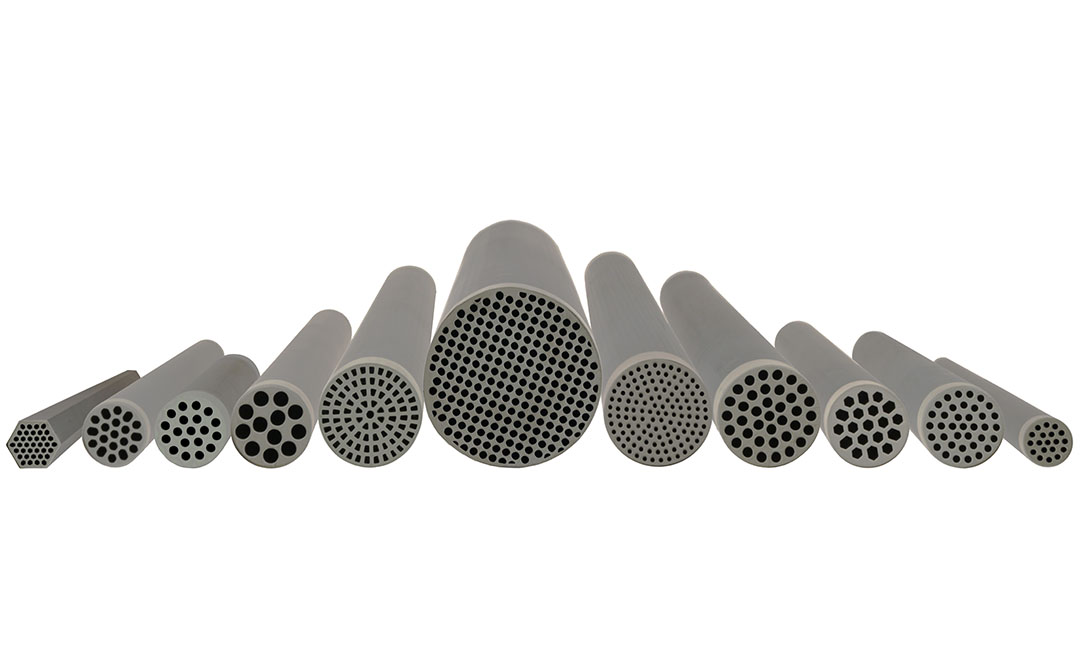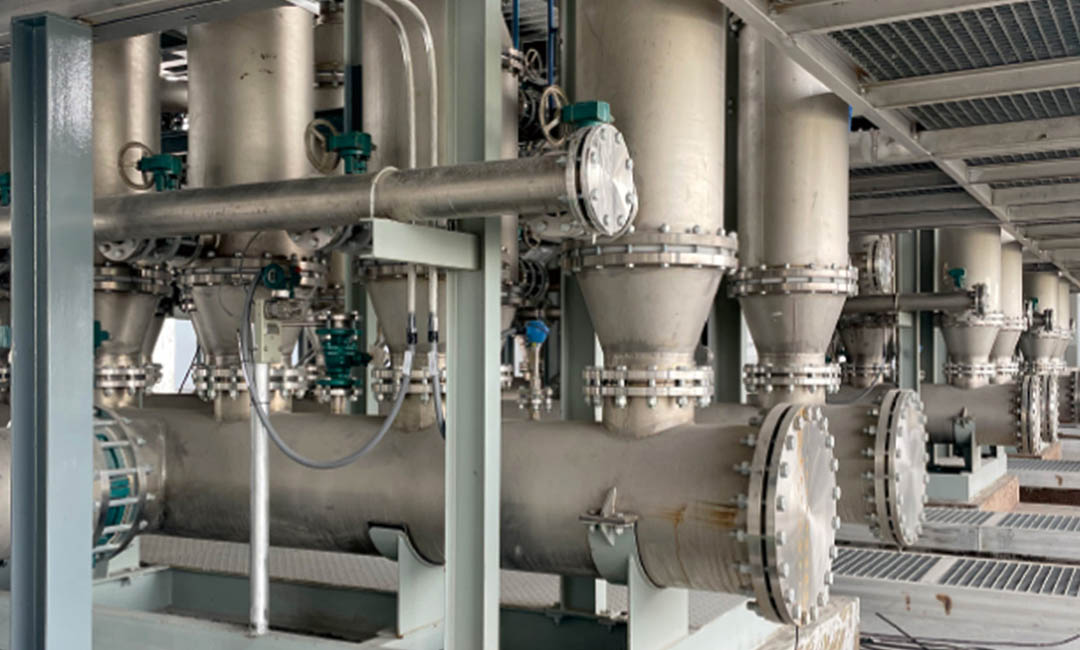Water Treatment in Industrial Processes
Tubular ceramic membranes have become an essential component in various industrial processes, particularly in the field of water treatment. These membranes offer a range of benefits, including high durability, chemical resistance, and excellent filtration efficiency. As a result, they have found widespread use in industries such as pharmaceuticals, food and beverage, and wastewater treatment.
One of the key applications of tubular ceramic membranes is in the treatment of industrial wastewater. Many industries produce large volumes of wastewater that contain harmful contaminants, such as heavy metals, organic compounds, and pathogens. Traditional treatment methods, such as chemical precipitation and biological treatment, may not be sufficient to remove these contaminants effectively. Tubular ceramic membranes provide a highly efficient and cost-effective solution for treating industrial wastewater, allowing for the removal of a wide range of contaminants with high precision.
In the pharmaceutical industry, tubular ceramic membranes are used for the purification of process water and the recovery of valuable products. Pharmaceutical manufacturing processes require high-purity water for various applications, such as cleaning, sterilization, and formulation. Tubular ceramic membranes can effectively remove impurities, bacteria, and viruses from process water, ensuring that it meets the stringent quality standards required by the industry. Additionally, these membranes can be used for the concentration and purification of pharmaceutical products, allowing for the recovery of valuable compounds and reducing waste generation.

The food and beverage industry also benefits from the use of tubular ceramic membranes in various applications, such as the clarification of fruit juices, the concentration of dairy products, and the treatment of wastewater. These membranes offer a high level of filtration efficiency, allowing for the removal of particles, microorganisms, and other impurities from food and beverage products. By using tubular ceramic membranes, food and beverage manufacturers can improve the quality and safety of their products, while also reducing production costs and minimizing environmental impact.
In addition to these key applications, tubular ceramic membranes are also used in other industries, such as the chemical, petrochemical, and power generation sectors. These membranes play a crucial role in processes such as desalination, gas separation, and air filtration, where high-performance filtration is essential for the efficient operation of industrial plants. By using tubular ceramic membranes, industries can achieve significant cost savings, improve process efficiency, and comply with regulatory requirements related to environmental protection and product quality.
Overall, tubular ceramic membranes have become an indispensable technology in the field of water treatment and industrial processes. Their unique properties, such as high durability, chemical resistance, and excellent filtration efficiency, make them ideal for a wide range of applications across various industries. As the demand for clean water and sustainable production practices continues to grow, tubular ceramic membranes will play an increasingly important role in helping industries meet their water treatment needs and achieve their sustainability goals.
Biogas Upgrading for Renewable Energy Production
Tubular ceramic membranes have emerged as a key technology in the field of biogas upgrading for renewable energy production. Biogas, which is produced through the anaerobic digestion of organic waste, is a valuable source of renewable energy that can be used for heat and power generation. However, biogas typically contains impurities such as carbon dioxide, hydrogen sulfide, and moisture, which need to be removed in order to meet the quality standards required for injection into the natural gas grid or for use as a vehicle fuel.
One of the most common methods for upgrading biogas is through the use of membranes, which selectively separate the impurities from the methane gas stream. Tubular ceramic membranes are particularly well-suited for this application due to their high selectivity, durability, and resistance to harsh operating conditions. These membranes consist of a porous ceramic material with a high surface area, which allows for efficient gas separation while maintaining a high flux rate.

In biogas upgrading applications, tubular ceramic membranes are typically used in a pressure-driven process known as gas permeation. The biogas stream is fed into the membrane module at high pressure, causing the methane molecules to selectively permeate through the ceramic membrane while the impurities are retained. This results in a purified methane stream that can be used directly as a renewable energy source or further processed for injection into the natural gas grid.
One of the key advantages of using tubular ceramic membranes for biogas upgrading is their ability to operate at high temperatures and pressures, which allows for greater flexibility in process design and optimization. Additionally, ceramic membranes are highly resistant to fouling and corrosion, making them ideal for long-term operation in biogas upgrading plants.
In addition to their use in biogas upgrading, tubular ceramic membranes are also finding applications in other areas of the renewable energy industry. For example, these membranes are being used in the purification of hydrogen gas for fuel cell applications, as well as in the separation of carbon dioxide from flue gas streams for carbon capture and storage.
Overall, tubular ceramic membranes are a versatile and efficient technology that is helping to drive the transition towards a more sustainable energy future. By enabling the purification of biogas and other renewable gases, these membranes are playing a crucial role in reducing greenhouse gas emissions and promoting the use of clean energy sources.
In conclusion, tubular ceramic membranes are a key technology in the field of biogas upgrading for renewable energy production. Their high selectivity, durability, and resistance to harsh operating conditions make them well-suited for this application, and they are also finding use in other areas of the renewable energy industry. As the demand for clean energy continues to grow, tubular ceramic membranes will play an increasingly important role in helping to meet this demand and reduce our reliance on fossil fuels.
Pharmaceutical and Chemical Separation Processes
Tubular ceramic membranes have become an essential tool in various industries, including pharmaceutical and chemical separation processes. These membranes offer several advantages over traditional filtration methods, making them a popular choice for companies looking to improve efficiency and reduce costs.
One of the key applications of tubular ceramic membranes in the pharmaceutical industry is in the separation of proteins and other biomolecules. These membranes are highly effective at removing impurities and contaminants from pharmaceutical products, ensuring that they meet strict quality standards. By using tubular ceramic membranes, pharmaceutical companies can improve the purity and yield of their products, leading to higher profits and customer satisfaction.
In addition to protein separation, tubular ceramic membranes are also used in the pharmaceutical industry for the filtration of antibiotics, vaccines, and other drugs. These membranes are capable of removing bacteria, viruses, and other microorganisms from pharmaceutical products, ensuring that they are safe for human consumption. By using tubular ceramic membranes, pharmaceutical companies can reduce the risk of contamination and ensure the quality of their products.
Another important application of tubular ceramic membranes in the pharmaceutical industry is in the purification of water and solvents. These membranes are highly effective at removing impurities and contaminants from water and solvents, making them ideal for use in pharmaceutical manufacturing processes. By using tubular ceramic membranes, pharmaceutical companies can reduce the cost of water and solvent purification, leading to significant cost savings.
In the chemical industry, tubular ceramic membranes are used for a wide range of applications, including the separation of organic compounds, inorganic salts, and other chemicals. These membranes are highly effective at removing impurities and contaminants from chemical products, ensuring that they meet strict quality standards. By using tubular ceramic membranes, chemical companies can improve the purity and yield of their products, leading to higher profits and customer satisfaction.
Tubular ceramic membranes are also used in the chemical industry for the filtration of wastewater and industrial effluents. These membranes are capable of removing pollutants and contaminants from wastewater and effluents, making them ideal for use in chemical manufacturing processes. By using tubular ceramic membranes, chemical companies can reduce the environmental impact of their operations and comply with strict regulations.
Overall, tubular ceramic membranes play a crucial role in the pharmaceutical and chemical industries, offering a wide range of applications and benefits. These membranes are highly effective at removing impurities and contaminants from pharmaceutical and chemical products, ensuring that they meet strict quality standards. By using tubular ceramic membranes, companies can improve efficiency, reduce costs, and enhance the quality of their products.

